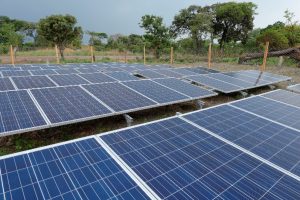Apprenticeships for greener economies and societies
English
International organizations
Information is gathered from other international organizations that promote skills development and the transition from education and training to work. The Interagency Group on Technical and Vocational Education and Training (IAG-TVET) was established in 2009 to share research findings, coordinate joint research endeavours, and improve collaboration among organizations working at the international and national levels.

Skills for green transition/climate action

The growing importance of sustainable development and the shift to a low-carbon and climateresilient economy will require new skills and qualifications, offering great potential for the creation of green jobs but also implying structural changes and a transformation of existing jobs. The transition to a low-carbon and greener economy will generate millions of new jobs, negatively affect some high-emitting sectors, and alter most existing occupations in terms of task compositions and skills requirements.
Ensuring the right skills for green jobs is a prerequisite to make the transition to a greener economy happen. Today, skills gaps are already recognised as a major bottleneck in a number of sectors, such as renewable energy, energy and resource efficiency, green building or environmental services. The adoption and dissemination of clean technologies require skills in technology application, adaptation and maintenance. Skills are also crucial for economies and
businesses, workers and entrepreneurs to rapidly adapt to changes deriving from climate change and environmental policies.
Case studies and good practices
Case studies that document good practices and illustrate the benefits and lessons learnt of particular approaches or methods in real practice.

This publication draws from practices and research and provides insights into how apprenticeships can promote and react to a green economy and society, from small-scale modular curriculum adaptation, to more encompassing sectoral or regional approaches.
As the green transition creates new skill needs across sectors and occupations, implications for preparing, reskilling and upskilling the workforce emerge for vocational education and training.
Apprenticeships can help by providing opportunities to young people, as well as adults, to develop appropriate skills; at the same time, apprenticeships will also need to undergo changes in response to the green transition. Cedefop and the OECD decided to explore this two-way relationship through the 2021 joint symposium on Apprenticeships for greener economies and societies, and this publication.
The practices and research presented show that apprenticeships demonstrate transformative potential for economies and societies, responding to the opportunities and challenges that may support a green recovery that leaves no one behind.
Apprenticeships
Green jobs
Green skills
Europe and Central Asia
